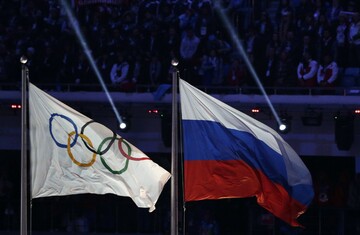A DISCREET “MOUSE hole” through a wall, surreptitiously tampered samples using table salt and night-time visits by Russian secret service agents dubbed “the magicians”.
These were some of the revelations detailed in a damning 100-page report released yesterday, alleging Russian state-run doping at the 2014 Sochi Winter Games and other major sports events, read like a Cold War thriller.
The probe by Canadian law professor Richard McLaren for the World Anti-Doping Agency (Wada) found that the FSB — the successor to the notorious KGB — helped “the state-dictated failsafe system” carried out under the Moscow sports ministry and covering 30 sports.
Central to the plan was destroying the supposedly tamper-proof urine samples that would have seen a Russian athlete caught doping and swapping them for clean ones.
The ploy involved a “clean urine bank” that was full of Russian competitors’ samples and later secretly transported by the FSB from Moscow to an FSB building located handily next to the Sochi Olympic testing laboratory, the report said.
The bank of clean urine sat in storage awaiting the swapping programme at Sochi when required.
The report said it had credible evidence from Moscow’s former anti-doping laboratory director Grigory Rodchenkov about what happened next — it was his allegations that sparked the investigation.
Rodchenkov is now in hiding in the United States and wanted by Russian authorities.
According to him, samples provided by athletes would pass through the “mouse hole” around midnight inside the supposedly secure Sochi laboratory into an adjacent “operations” room outside the secure perimeter.
From there an FSB agent disguised as a sewer engineer who had security clearance to enter the laboratory stepped in.
The agent would dispose of the dirty urine and replace it with a clean sample taken from the FSB freezer next door, the caps and stoppers screwed back into place, before returning it back through the hole for testing the next morning — what the report dubbed a “quaint solution”.
Rodchenkov’s role included manipulating the substituted sample — including by using salt — so the ruse would not come to light.
“The Sochi sample swapping methodology was a unique situation, required because of the presence of the international community in the laboratory,” the report said, adding that forensic examinations confirmed sample bottles had been tampered with.
“It enabled Russian athletes to compete dirty while enjoying certainty that their anti-doping samples would be reported clean.”
No Russians were caught doping in Sochi.
The International Olympic Committee is holding emergency talks today to decide Russia’s status for the Rio Olympics, with many already calling for the entire Russian team to be banned from the Games. Russia’s athletics team has already been banned from the event.
(C) AFP 2016
The42 is on Snapchat! Tap the button below on your phone to add!








Schumi didn’t replace Massa in ’09, Luca Badoer drove 3 races before Fisichella took over for the rest of the season.
He considered replacing Massa, but didn’t.
And Eddie Jordan would have given him the drive anyway – Mercedes were offering him money. And EJ would never turn down money. I’m sure he’s been paid to tell this story yet again. He drags it out every time Schumacher is in the news.